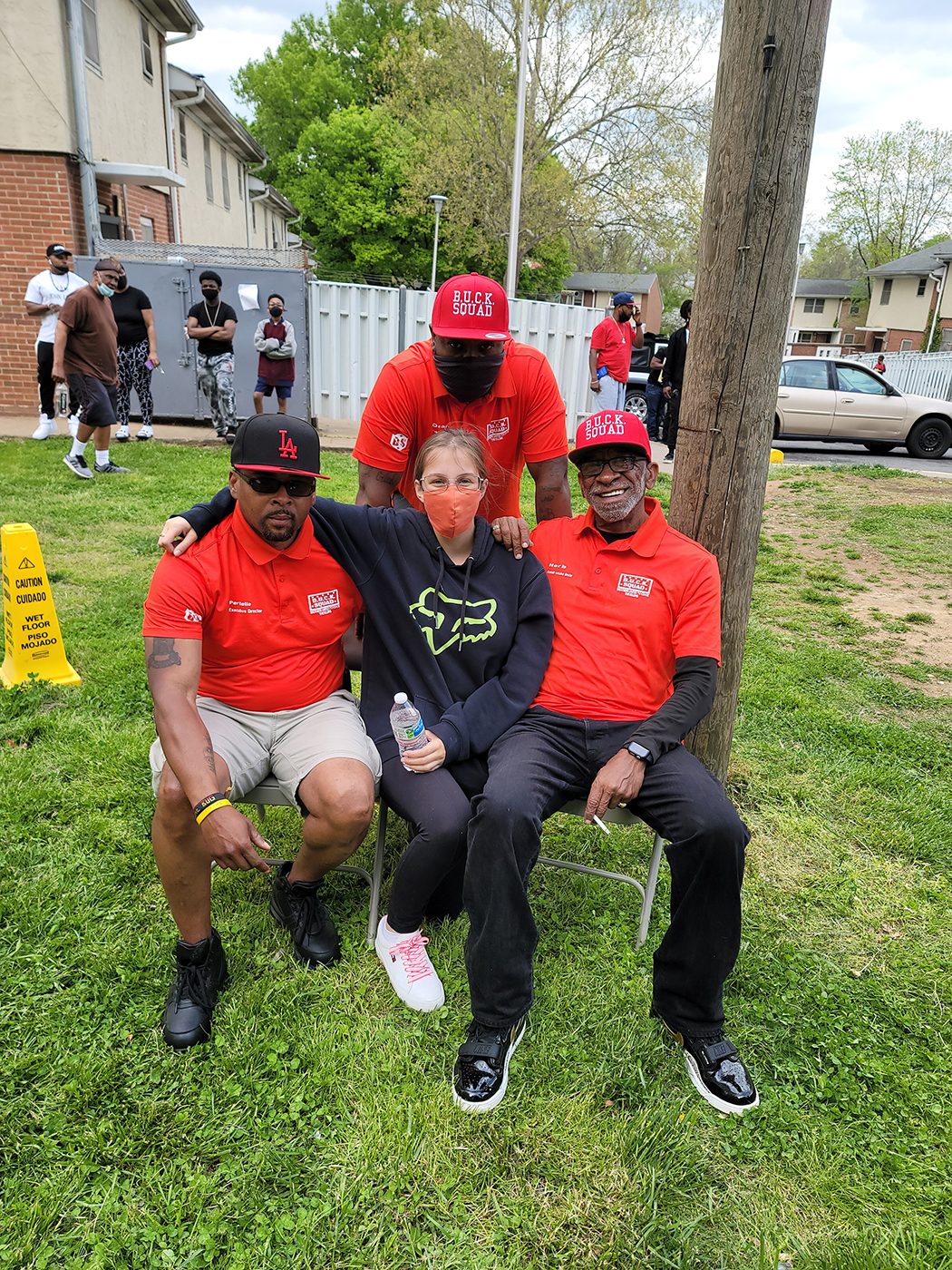Two weeks ago, Pertelle Gilmore received an urgent phone call—there was a conflict going on at the Westhaven public housing community. Joined by a few other members of the B.U.C.K. Squad, he rushed to the scene to urge everyone involved to stand down and put away their guns. But while the violence interrupters talked to one group, the other one started shooting.
“Two truckloads of guys pulled up [and] let loose,” says Gilmore, executive director of the B.U.C.K.—Brothers United to Cease the Killing—Squad. “Kids were everywhere. There were probably about 30 kids out there.”
“Someone got shot that night,” he says. The victim survived, and is in stable condition.
According to Gilmore, this shooting could have been prevented if the all-volunteer squad had enough violence interrupters on the scene to deescalate both parties at the same time. But a majority of the squad’s members were at work, and couldn’t get there before the bullets started flying.
Multiple shootings have occurred in or near public housing in the last month. The first weekend of May saw four separate shots-fired incidents, according to the Charlottesville Police Department.
Around the country, gun violence increases during the summer, Gilmore warns.
“We’ve been inside during the cold months, but once the first semblance of some warmth comes out, people come out,” he says. “You have these various personalities and egos in these neighborhoods. The more egos you got the more clashes you have.”
In response to the gun violence spike in Charlottesville’s predominantly Black communities over the past year, the B.U.C.K. Squad began intervening in conflicts in January, talking down groups before they turned to violence. The following month, City Council donated about $20,000 to the squad for conflict resolution training. Since then, the volunteers have relied on community donations, which currently cover only basic expenses, Gilmore says.
Despite these financial limitations, the group has been largely successful. Out of the 46 conflicts its members have intervened in, only three resulted in shootings.
It’s embarrassing that we live in such an affluent, rich, and wealthy community and have to fight for funding.
Pertelle Gilmore, executive director of the B.U.C.K. Squad
According to operations director Herb Dickerson, the squad needs around 30 additional members to fully handle the anticipated summer rise in gun violence.
With its limited resources, Guns Down Virginia, an affiliated group, has also kicked off several initiatives to tackle the root causes of violence, including youth mentorship, grief counseling, gun buybacks, and community events.
When asked about Gilmore’s calls for funding, City Councilor Sena Magill said the city is working to address gun violence from “multiple directions.”
“We are looking into a number of things, including how to maximize city dollars with possible other grants and multiple interventions that need to take place,” says Magill, speaking only for herself.
Councilor Lloyd Snook echoed Magill’s sentiments, explaining that the city will likely use state and federal funds to tackle the problem.
Gilmore has also had success securing funding from angel investors. This month, Guns Down received $10,000 from local entrepreneur David Manka, who Gilmore says has challenged every well-off white Charlottesville resident to match his donation.
“It’s embarrassing that we live in such an affluent, rich, and wealthy community and have to fight for funding to cure something as atrocious as the murder and homicide of Black babies,” says Gilmore. “I find it disgraceful to say I’m a Charlottesvillian, and walk on the Downtown Mall and see people who I know can change the whole trajectory of a generation of Black people with one check.”
“An attitude of indifference [is] a part of the problem,” he says. “Play your part, and let’s change the city.”
To donate to the B.U.C.K. Squad, visit bucksquad911.org.
